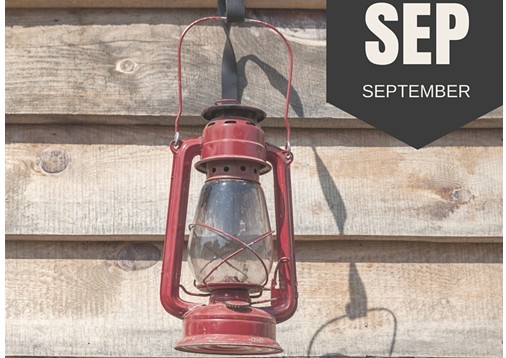
Ever wondered what the preparedness community is up to each month? We not only have the National Preparedness month in September, but there are eleven other national observance months that make up the 12-month prepper checklist calendar. Here are several uses for this prepper calendar:
- Save money on emergency preparedness supplies – In the month of April, National Garden Month, there are great sale prices on garden supply preps. In the month of June, National Great Outdoors Month, you can save on camping essentials or items for a bug out bag.
- Explore new preparedness ideas – October is Energy Awareness Month. There’s new articles, product launches, and resources that become available on the latest renewable, self sufficient energy sources.
- Connect with like-minded individuals – It’s a common tread among preppers to feel like they are isolated in their belief of “Being Prepared”. You may be the only Prepper within your family, friends, or even neighborhood. The prepper calendar can help you locate trade shows, classes, and/or events where you can rub shoulders and connect with our ever-growing prepper community. Just do an internet search of the national observation month and your state or community. Example: “Ham Radio Field Day Idaho”.
- Awareness – I’m a big believer in spreading preparedness awareness. Community activities such as fairs, trade-shows, and expos are great resources in spreading community preparedness awareness. By supporting these events, more events and resources will become available, which is one of the simplest ways to grow the number of Preppers in your community.
- Beginning Preppers List – It’s helpful to have a guide when taking on a large project. Gathering all the preparedness supplies you need can be simple. The prepper calendar was designed to provide a simplified supplies gathering plan. Each month provides a focus category to work on.
12-Month Prepper Checklist
The following Basic Prepper List is meant to be used with a Preparedness Supplies Checklist to provide ideas to help you prepare a little each month. An emergency preparedness supplies checklist can be overwhelming, so pick a couple of supply items in each monthly category to gather, then repeat the process the following year. There are links to supply checklists throughout.
January – Goals and Financial Preps
- Create a preparedness supplies checklist or print off the attached Preppers Supplies Checklist. Evaluate what supplies you have and what you still need.
- Set preparedness goals for this year. Review goals from last year.
- Set a budget. How much can you set aside from each paycheck to add to your emergency preparedness supplies? Prepper Calendar
- Add to your emergency cash stash.
February – Food Storage Preps
- Add to your food storage. My basic canned food storage is comprised of: veggies, fruits, beans, meats, and pasta sauce. Freeze dried and dehydrated canned food is becoming more popular because it can add a lot of variety to a pantry. My favorites are: milk, honey, carrots, onions, peppers, broccoli, beef, and chicken. For a food storage checklist click here.
- Add to your preparedness kitchen supplies. Have a manual can opener and a back-up cooking method in case the power goes out.
- Experiment with food storage friendly recipes. When you find one your family enjoys print it out and compile a food storage friendly cookbook.
- Here’s a recipe to help you get started: 8 Can Taco Soup.
- Develop canning skills. Oranges are harvested in February so its a great time for canning marmalade jelly.
March – Evacuation Plan
- Get a map of your area. You can usually find free maps at your local visitor center. Consider getting a city map, a state map, and a road atlas.
- Have an evacuation plan. Decide where you will go if your area receives an Evacuation Advisory. Many people risk there lives during the crisis because they don’t believe they have anywhere to go. If you don’t have friends or family you’d can stay with pick a camping area in another state.
- Make or update a list of the items you’ll want to grab when leaving your home in a hurry: bug out bag, cell phone, case of MREs, case of water bottles, documents in fire safe, gun, laundry basket. In case you were wondering, the laundry basket is usually full of the clothes you and your family most often wear.
April – Self Reliance Skills
- Stock up on a variety of heirloom seeds. Research proper storage of garden seeds. Click here for a seed checklist.
- Develop your gardening skills. Find ways to grow the produce you normally buy from the grocery store, whether its starting with an herb garden, container gardening, planting fruit trees, or having a traditional garden .
- Cultivate your bartering skills. Find other gardeners or homesteaders to exchange produce or other goods and services.
- Develop a prepper hobby. Click here for a list of 26 hobby ideas.
May – Fitness Plan and First Aid Preps
- Get a good pair of running or hiking shoes for your bug out bag.
- Create a fitness plan and schedule to increase your endurance and improve your health.
- Explore and get familiar with the hiking trails and campgrounds in close proximity.
- Add to your first aid supplies. For ideas and a checklist click here.
June – Communication Preps and CPR Skills
- Look for deals. With the nation celebrating the Great Outdoors Month many preparedness items are on sale this month.
- Get a hand crank AM/FM radio or HAM radio to add to your communication preps. Remember you need to be licensed to operate a HAM radio. ARRL Field Day is held on the fourth full weekend of June. Preppers all over the nation gather to practice operating radio equipment in a disaster scenario. Note: you don’t need a license to listen in on a HAM Radio.
- Brush up on you CPR skills. You can find free training on YouTube or look up a class in your community.
July – Protection Preps
- Learn about the different classes of fire extinguisher.
- Place smoke detectors, carbon monoxide detectors, and fire extinguishers in central points throughout your home.
- Add to your security, protection, and/or hunting checklist.
- Improve your Everyday Carry kit.
August – Water Storage Preps
- Get a water filter like the Sawyer or the Lifestraw to remove waterborne bacteria and parasites from contaminated water.
- Store extra water for you and your family in water barrels or 5 gallon water bottles.
- Rotate water storage.
- Discover alternative ways to filter and collect water. Learn how to make a solar still by clicking here.
September – Preparedness and Bug Out Bag
- Start, update, or add to a bug out bag or 72 hour kit. Click here for a beginner checklist and here for an intermediate checklist.
- Program the Emergency Call and ICE contacts in your phone.
- Step one – In Contacts, select Groups (Android phone).
- Step two – Click on ICE
- Step three – In the top right click on the 3 dots, then Edit Group.
- Step four – Add members. I added 911, my husband, and a family member that lives close by.
October – Power Outage Kit and Energy Awareness
- Add solar items to your emergency supplies like a Lantern, Radio, or solar charger.
- Put together a Power Outage Kit. Prepper Calendar
- See if you have what it takes to live without power for a week. Many families have survived when winter storms knocked out the power. Read one families story here.
- Explore alternative energy options. Here’s a good article about renewable energy resources.
November – NoSHAVEmber – Health and Hygiene Awareness
- Don’t bother shaving in the month of November. Participate with men and women all over the nation by saving your razors. The purpose of NoSHAVEmber is to raise awareness regarding health, specifically prostate cancer.
- Work on your hygiene supplies checklist. Stock up on toothbrushes, toothpaste, baby wipes, soap, nail clippers, and a haircut kit. Prepper Calendar
- Develop a self reliant skill such as making bar soap or knitting a wash cloth.
December – Freedom From Want – Your Choice Supplies Stockup
- Educate yourself about the war on terrorism: See Something Say Something Tips.
- Get a mini Bible for your bug out bag. Prepper Calendar
- Reject the label “Consumer Nation”. The United States has been labeled the consumer nation. Whereas, China is known as a producing nation. Find ways to produce and speak up for your rights to live self-sufficiently. Living off-grid and collecting rain water are illegal in many areas across the nation. In my local area, beehives were not allowed within city limits. But my dear friend and her mother rallied local citizens and brought the issue before city council. Now our city ordinances allow us to keep non-commercial beehives on our property. Find ways to exercise your freedom of speech and protect your rights, liberties, and freedoms.
- Store-up supplies in times of plenty. Economic security comes and goes throughout the ages. The lesson we can learn from history is to be prepared for times of scarcity. It is a great way to honor your human right, freedom from want.


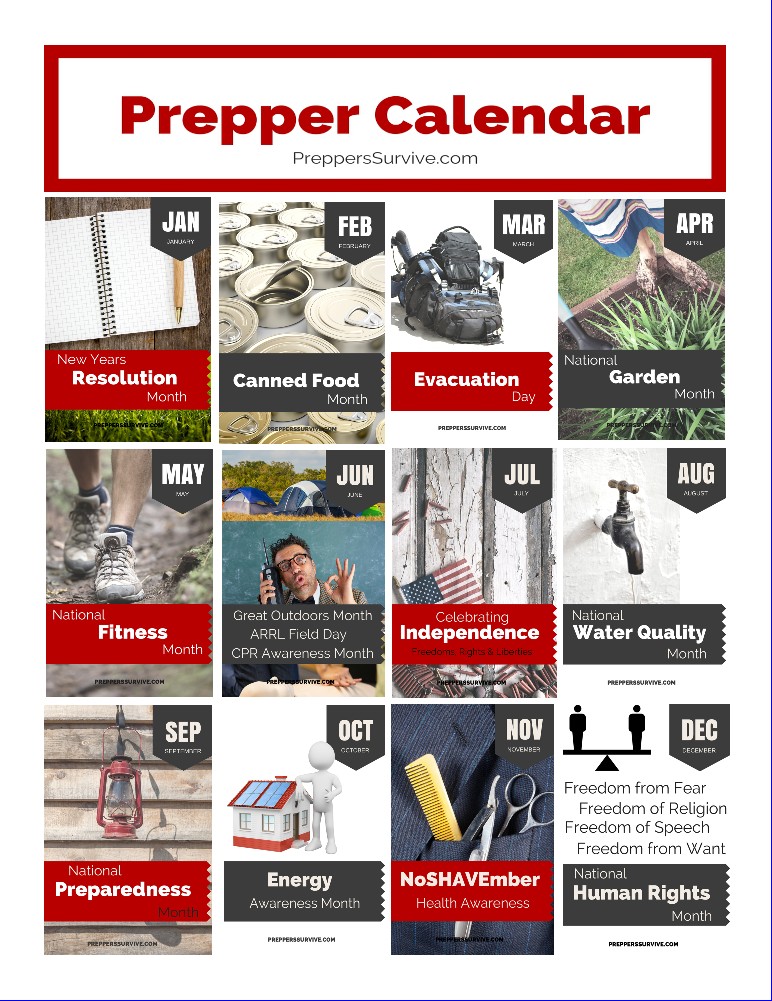
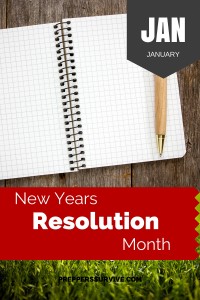
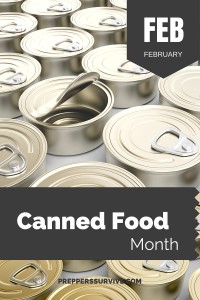
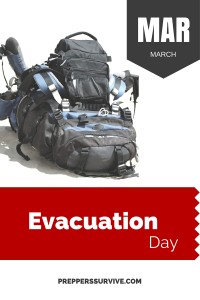
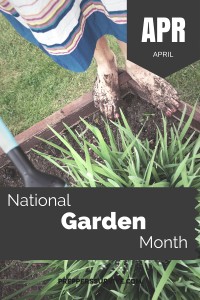
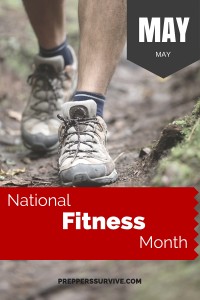
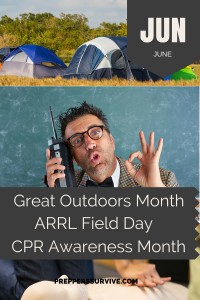

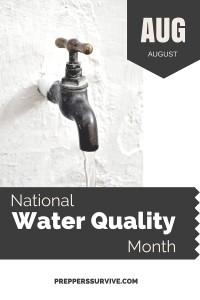
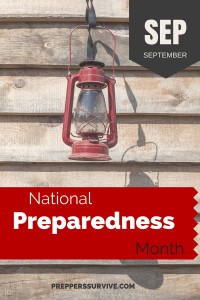

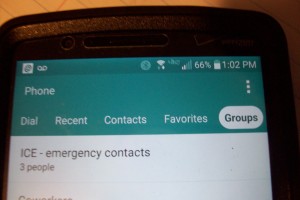
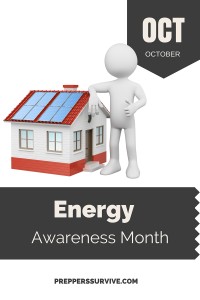
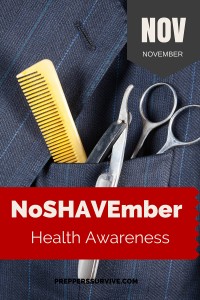

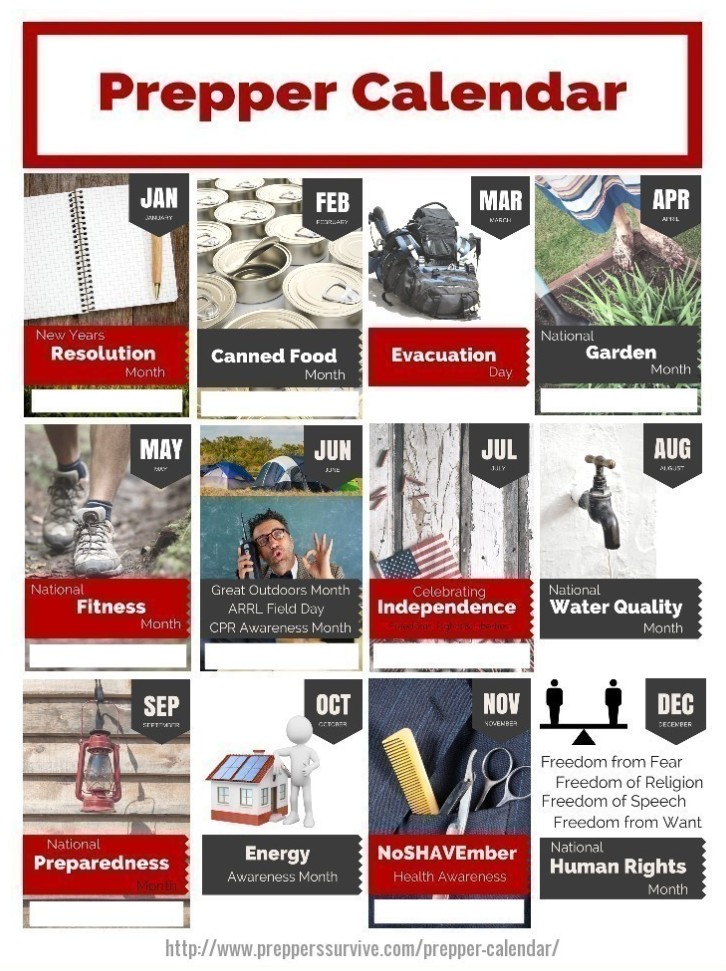
Love this!!